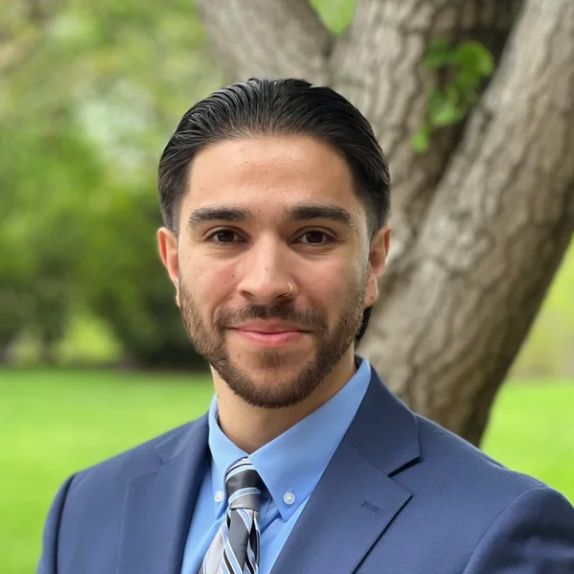Your Guide to ADHD Therapy in Chicago
Looking for ADHD therapy in Chicago? Explore the MiResource therapist directory to find providers who fit your needs, preferences, and location. We make it easy to discover a good match so you can start care with confidence.
Learn more about ADHD
This Chicago ADHD resource covers general information about attention-deficit/hyperactivity disorder, including symptoms, causes, and common challenges. It outlines what to expect from ADHD therapy or treatment in Chicago, such as evaluation, evidence-based approaches, and ongoing support.
What is ADHD?
ADHD is a common neurodevelopmental disorder marked by persistent patterns of inattention and/or hyperactivity-impulsivity that interfere with functioning or development. Symptoms can include trouble focusing, restlessness, forgetfulness, disorganization, and impulsive decisions. It can affect daily life at school, work, and in relationships, making tasks like time management and follow-through harder—even in Chicago. If you’re curious about supportive care and next steps, learn more on our
ADHD page.
Why Seek Therapy for ADHD?
Living with ADHD can feel overwhelming, but the right support can help you feel more focused, confident, and understood in Chicago. Evidence-based therapies for ADHD include Cognitive Behavioral Therapy tailored for ADHD (builds tools for organization, time management, and reducing procrastination), Behavioral Parent Training (improves routines, positive reinforcement, and parent-child communication), Organizational Skills Training (creates practical systems for planning, homework, and follow-through), Mindfulness-based programs such as MBCT/MBSR (boosts attention, impulse control, and stress tolerance),
DBT
-informed skills adapted for ADHD (supports emotion regulation and frustration tolerance), and school/classroom behavioral interventions like contingency management (reduces disruptive behaviors and strengthens academic skills). Many people also benefit from FDA-approved medications—stimulants and nonstimulants—which can markedly improve attention and impulse control, making therapy skills easier to use. With compassionate care, you can make daily life simpler, relationships steadier, and goals more attainable.
What to Expect from ADHD Therapy
In ADHD therapy, you can expect a collaborative, personalized process that starts with understanding your goals and building practical strategies that fit your life in Chicago. Many people benefit from
Cognitive Behavioral Therapy (CBT)
to challenge unhelpful thoughts and build routines and problem-solving skills. Behavior Therapy focuses on shaping day-to-day habits with concrete rewards and step-by-step plans.
Parent Training
helps caregivers learn consistent techniques to support children with ADHD at home and school. Organizational and Skills Training targets time management, planning, and task initiation with tools like schedules, reminders, and breaking tasks into manageable steps.
How to Find the Right ADHD Therapist in Chicago
Start by searching the directory for ADHD under conditions to see providers who specialize in your needs. Then refine your results by therapist approach (CBT, coaching, family-focused care), experience working with ADHD across ages, accepted insurance, and real-time availability. Use the proximity filter to find options convenient to your Chicago neighborhood or commute. Read profiles to gauge communication style and values—personal fit is crucial for effective care. MiResource makes it simple to compare options side by side and choose confidently. Explore the directory now to find your ADHD therapist in Chicago.
Why Choose a Local Chicago ADHD Therapist?
Living with ADHD in Chicago comes with its own rhythm. From the sensory buzz of the Loop to the creative energy of Pilsen and the academic pace in Hyde Park, local culture can shape attention, stress, and daily routines. A therapist who understands Chicago’s block-by-block diversity—weeknight noise near Wrigley Field, the calm of the Lakefront Trail, winter slowdowns, and summer festival overload—can tailor strategies that fit your neighborhood life, whether you’re commuting on the Red Line from Rogers Park or juggling gigs across West Town and Bronzeville.
In-person support also means practical planning that matches the city’s logistics. Sessions near CTA hubs (e.g., Blue Line stops in Logan Square or the South Loop’s Roosevelt station) reduce friction, while timing around Kennedy or Dan Ryan rush hours, Sox or Bears game traffic, and construction on DuSable Lake Shore Drive can keep care consistent. Many clinicians offer flexible hours in River North, the Loop, and Andersonville to align with shift work, campus schedules, and family routines, making it easier to build momentum and accountability.
Chicago offers robust ADHD and mental health resources you can integrate with therapy. Consider
NAMI Chicago’s
helpline and support groups,
CHADD’s
Chicago chapter for parent/adult groups and education, and
Cook County Health Behavioral Health services
, including sliding-scale options.
The Chicago Department of Public Health
operates city mental health clinics and connects residents to care, crisis lines, and the CARE alternative response program. For broader access, see the
Illinois Division of Mental Health
and 988 linkage.
Frequently Asked Questions
How do I know if I need a therapist for ADHD?
It might be time to seek support if you’re often overwhelmed by tasks, missing deadlines, struggling to focus in school or at work, or feeling discouraged by repeated attempts to “get organized” that don’t stick. Many people in Chicago notice ADHD challenges spike during life transitions, busy commutes, or high-pressure schedules. If forgetfulness, impulsivity, or emotional ups and downs are disrupting your relationships or daily routine, therapy can help. Reaching out doesn’t mean something is “wrong”—it means you’re ready for tools that fit how your brain works.
What if I don't feel a connection with my therapist? Is it okay to switch?
Yes—it’s completely okay to switch. Finding the right fit is a normal part of the process, and the therapeutic alliance is especially important for ADHD because trust and collaboration help you try new strategies and follow through. You deserve a therapist in Chicago who understands ADHD, communicates clearly, and matches your goals and learning style. If it’s not clicking, discuss it openly or explore other options.
Is online therapy as effective as in-person therapy?
For many people with ADHD, online therapy is just as effective as in-person care, especially for CBT, skills training, and coaching. Virtual sessions can be more accessible in Chicago by removing commute time, weather hurdles, and scheduling barriers. Some people prefer in-person for structure, body-doubling, or when doing more experiential work; complex assessments may also be better face-to-face. The best choice depends on your preferences, access, and the nature of your goals.
What should I ask a potential ADHD therapist?
Ask about their experience and training with ADHD (adults, teens, or kids), and which evidence-based approaches they use (e.g., CBT for ADHD, organizational skills training, coaching, parent training). Inquire how sessions are structured, what homework or tools you’ll practice between visits, and how progress is measured. Clarify logistics: availability in Chicago or via telehealth, cost and insurance, cancellation policies, and communication between sessions. If you take medication, ask how they coordinate with prescribers.
Does therapy for ADHD really work?
Yes—research shows therapies like CBT for ADHD, skills training, and coaching can improve time management, organization, emotional regulation, and follow-through. Many people see the best results with consistent practice and when the therapist is a good fit. For some, combining therapy with medication enhances outcomes. In Chicago, access to specialized ADHD providers and supportive resources can further strengthen your progress.













